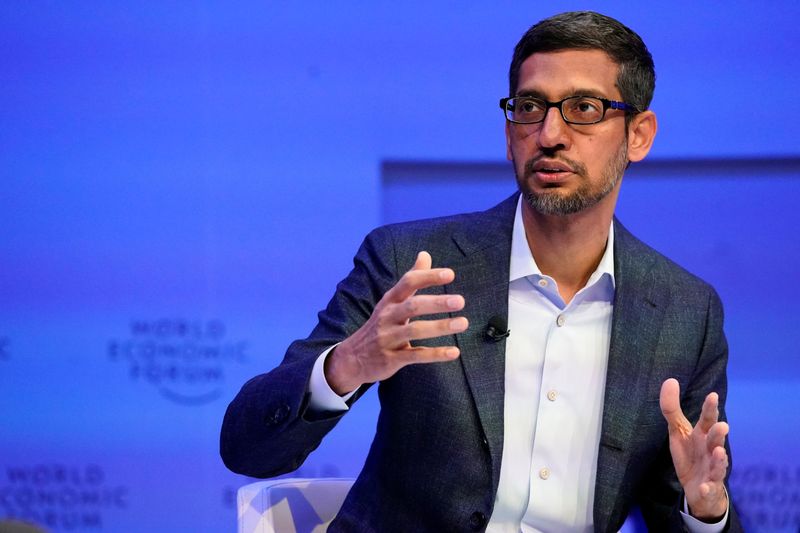This post was originally published on this site
https://i-invdn-com.akamaized.net/trkd-images/LYNXMPEG8E0UV_L.jpg
BOSTON/LONDON (Reuters) – Vanguard Group Inc said it voted against the pay of Alphabet Inc executives, including new CEO Sundar Pichai, one of several examples of proxy voting the top mutual fund firm gave in a report to be released on Tuesday as it names a new stewardship chief.
The parent of search engine Google (O:GOOGL) paid Pichai’s stock awards valued at $276.6 million for 2019, according to the company’s proxy, accounting for nearly all his compensation.
Vanguard said in the report it “found a misalignment between pay and performance” and would have liked to see more long-term compensation tied to metrics like relative total shareholder return.
In an advisory ballot at Alphabet’s annual meeting in June 25% of votes cast were “against” the pay. An Alphabet spokeswoman declined to comment on Vanguard’s votes.
Vanguard also opposed Alphabet’s executive pay in prior years. But like other fund firms lately, Vanguard has begun to disclose more details about its reasoning behind specific proxy votes on topics like director elections, social issues or climate policies.
John Galloway, whom Vanguard will name as its new head of stewardship on Tuesday, said an argument to keep the talks behind closed doors would be to have more candid conversations with company executives. But he is more concerned about making Vanguard’s views transparent to its clients, as many votes are decided for subtle reasons.
“How we evaluate nuance is really important and certainly outstrips other concerns,” Galloway said in a telephone interview.
In another example, in Britain, Vanguard said it declined to back a shareholder resolution at Barclays (L:BARC) aimed at pushing the bank to phase out financial activities in the energy and utilities sectors.
Instead, after talking to management, Vanguard wrote that it backed the company’s own climate-related proposal as “we determined that management’s approach was in the best interest of long-term shareholders.”

